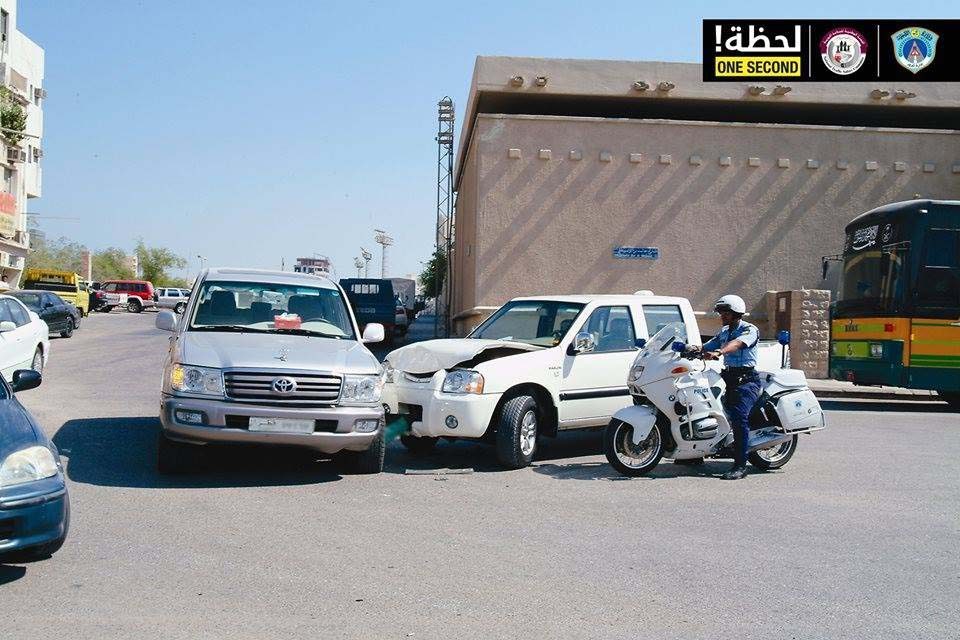
Traffic police in Qatar will soon be provided new tablets to help them report and record road accidents more quickly and easily.
The handheld devices, which will be issued to all traffic departments across the country in the coming month, would enable police to record all the relevant information about an accident while onsite, including taking photographs of the cars.

This should mean that those involved in the accidents would no longer need to go to the police station to fill out paperwork afterwards – often a confusing, hours-long ordeal for those who have never been in an accident in Qatar.
The Qatar Tribune reported that officers would also be able to send those involved in the accident a copy of the report via email or text message.
Additionally, the software used would enable police called to the scene to check the history of the drivers, including whether they have any violations recorded against them.
The new technology was unveiled by the Ministry of Interior’s (MOI) General Directorate of Information System following last week’s Milipol military expo, which saw Qatar confirm QR309 million of deals during the three days.
As part of Milipol, the MOI also said it had signed a QR3.8 million contract with Eshhar Security Services to supply 11 traffic radars (speed cameras) and 10 truck weigh bridges.
Coping mechanisms
Qatar’s roads are growing increasingly crowded, with more than 8,400 new cars being added to the streets each month. That growth is not expected to slow down anytime soon, with the population forecast to climb from nearly 2.2 million people now to some 2.5 million by 2016.
Mindful of the ensuing traffic congestion, Qatar’s authorities have begun to work harder to enforce existing laws.
Earlier this summer for example, MOI reminded drivers that in the event of minor accidents, they should not leave their cars in the middle of the road and wait for police – as had been the previous practice. Instead, motorists should move their vehicles to a safe place nearby that doesn’t other block other traffic before calling police.
Failure to move the vehicles could result in QR1,000 of fines and three points on the driver’s license.

The Traffic Department has also been taking a tougher line to tackle common problems such as double parking, when it announced last week that those parked illegally risk having their car towed.
And in June, MOI warned motorists who try to illegally overtake from the right at roundabouts and intersections also face their cars being towed and a fine imposed. In the first month this was introduced, around 100 cars a day were seized by police.
Unmarked police patrols have also been sent out to traffic black spots, including Al Waab, the Expressway and C-Ring road in an attempt to catch and write up motorists who regularly break the traffic rules.
Meanwhile, MOI has been using social media to remind residents of basic road rules that could help reduce the number of traffic accidents on the nation’s roads each month.
Know the limits – look for signs, especially at junctions, Remember, speed limits are a maximum, not a target. #َQatar #MoI_Qatar
— Ministry of Interior (@MOI_QatarEn) October 11, 2014
Earlier this year, a report from Qatar University’s Road Safety Studies Center found that traffic accidents cost Qatar QR17.6 billion over the past six years.
This figure included the bill for emergency and ongoing care for the injured, and value of damaged property as well as any resulting insurance and legal costs.
Thoughts?







